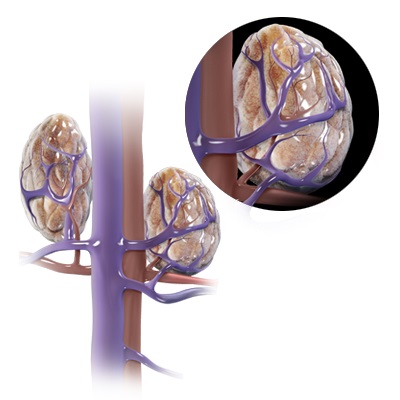Cushings Disease

Cushing’s disease or hyperadrenocorticism results due to excessive production of stress hormone (cortisol) in the body. It can occur in three different forms. One of which is caused due to the formation of a tumor within the pituitary gland at the base of the brain and is the most common form. The over-stimulation of the adrenal gland by this tumor produces excess levels of cortisol hormone. The second form is caused by the overproduction of cortisol hormone due to the formation of tumors in the adrenal glands which are present next to the kidneys. These tumors can be benign or malignant. The prolonged use of steroid medication (e.g. prednisone, dexamethasone) can lead to the third form of Cushing’s disease. All three forms of the disease show similar symptoms which include excessive thirst, urination, appetite, recurring infections, and high blood pressure. The disease is diagnosed by specialized blood tests and sometimes imaging (CT scan, abdominal ultrasound). Treatment varies depending on the cause of the disease. If the disease is due to a pituitary tumor, it is managed with oral medication. In the case of adrenal gland tumors, the surgical removal of the tumor is recommended while if excessive cortisol is produced due to medication, it requires the gradual withdrawal of the drugs responsible for causing the disease. When left untreated, the disease can result in hypertension, persistent infections, and poor wound healing.
